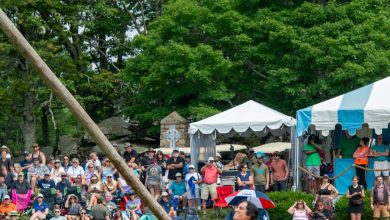Last Updated on March 29, 2017 4:20 pm
RALEIGH – People often expect insects to be most active in the warm days of summer, but pine bark beetles can be active any time of year.
Kelly Oten, forest health monitoring coordinator with the N.C. Forest Service, tells landowners with pine on their property what they should look for so pine bark beetles don’t leave them pining for healthy trees.
“One of the first symptoms noticed is needle discoloration in the canopy,” Oten said. “The green needles fade to light green, then yellow, then eventually red. Upon closer inspection, you may see dried pine resin on the bark of the tree. These are called pitch tubes and are the tree’s defense to a bark beetle attempting to bore through the bark.”
Adult and immature beetles feed beneath the bark, creating winding tunnels that can be seen if the bark is peeled off, Oten said. These galleries prevent nutrients and water from traveling within the tree, effectively choking it.
Most bark-beetle activity occurs in pines that are stressed or weakened by another factor. The current drought in Western North Carolina leaves many pines susceptible to beetle attack. Other factors that may increase susceptibility to attack are nutrient deficiencies, mechanical damage and lightning strikes.
There are a few types of bark beetles that attack pine trees in North Carolina. The Ips engraver beetles are likely the most common. They rarely attack healthy trees and generally infest small groups or scattered pines. They can cause branches or the entire tree to die.
Generally, the southern pine beetle also attacks weakened trees. However, it can reach outbreak levels and become extremely destructive, Oten said. When this happens, healthy trees are also attacked and a quick response is necessary. This response typically involves cutting down the infested pine trees and surrounding trees to create a buffer.
Landowners suspecting bark-beetle activity in their trees should contact their N.C. Forest Service county ranger, who can assist with identification and offer forest management advice. To find your county ranger, visit http://ncforestservice.gov and click on “Contact Us.”
















